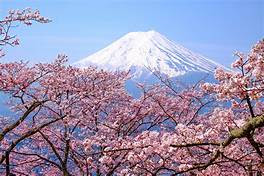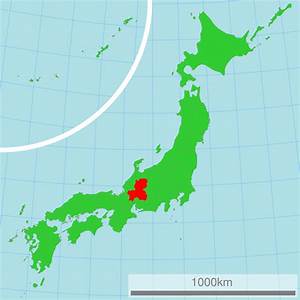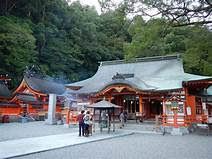Japan
 |
| Japan |
Japan is a country located in the continent of Asia. Japan
is a group of four big and many small islands. These islands are located in the
east coast of Asia, i.e. Pacific Ocean. The nearest neighbors are China, Korea
and Russia. In Japan there is 9.5% of the population of the original
inhabitants. The rest are 0.5% Korean, 0.4% Chinese and 0.6% others. Japanese
is called Nippon, which means sunrise. Tokyo is the capital of Japan and its
other major metro is Yokohama, Osaka and Kyoto. Buddhism is the main religion
of the country and 96% of the population of Japan is a Buddhist follower.
According to Japanese folklore, the creators of the world
also created Sun Goddess and Chandra Devi. Then his grandson came to the island
of Kyushu and later his offspring spread on the Hanshudweep.
Ancient time
Japan's first written testimony comes from a Chinese article
of 57 AD. It describes a visit to China from a former politician who came from
a former island. Gradually, diplomacy and cultural relations were established
between the two countries. At that time, Japanese used to follow a polytheistic
religion, which used to be many gods. Buddhist religion reached Japan through
China in the sixth century. After this, the old religion was termed Shinto,
which literally means - the cult of Gods. Buddhism did not end old beliefs but
the main religion remained Buddhist. The advent of Buddhism from China came in
the same way as people, the system of writing (script) and the use of temples
for cultural and educational purposes.
According to Shinto beliefs, when a king dies, then the
ruler will make his capital at a different place than before. This belief was
abandoned after the arrival of Buddhism. In 710 AD, King made his permanent
capital in a town named Nora. By the end of the century, it was transferred to
a city named Haire, which was later named Kyoto. In 910, Japanese ruler
Fujiwara separated himself from the political power of Japan. Until then,
Japan's dominance of power was politically different from Japan. It was
completely different from its contemporary Indian, European and Islamic areas,
where the head of power was also the head of power. The rule of this lineage
remained till the end of the eleventh century. In many people's eyes this
period was the golden age of the Japanese civilization. The contact with China
went down, and Japan made its own identity. Tenth century has adopted the path
of Buddhism. Since then, Japan has reinforced itself as an economic power and
in its technical fields, its name is counted among the leading nations.
Geography
 |
| Japan |
Department of Japan
Japan is a country made up of many islands. Japan is made up
of 6800 islands. Of these, only 340 islands are more than 1 square kilometer.
Japan is often called the country of four major islands. These are the islands
- Hokkaido, Honshu, Shikoku and Kyushu. Because 76.2 percent of Japanese land
area is surrounded by mountains, the agricultural land here is only 13.4
percent, 3.5 percent is water in the area and 4.6 percent of the land is in
residential use. Japan is not self-reliant in the case of food grains. Despite
being surrounded by the ocean, 28 percent of its requirement is to be made from
outside.
Government and politics, government
Although it is not written anywhere, Japan is the principal
king of political power. His powers are limited. According to the Constitution
of Japan "the king represents the unity of the country and the
public". According to the constitution, Japan's autonomy is in the hands
of the people of Japan.
Foreign Policy
Japan's relationship with the military is normal from the
US.
Army
The present constitution of Japan forbids it from military
campaigns or climbing on other countries.
Economy
According to an estimate, Japan is the world's second
largest economy, but Japan's economy is not stable. The average annual income
of the people here is approximately US $ 50,00, which is significantly more
than 1868, the Meiji Period launched the economic expansion. Meiji rulers
embraced the concept of free market economy and adopted British and North
American forms of free enterprise capitalism. Japanese studied abroad and
Western scholars were hired to teach in Japan. Today's enterprises had
established many times. Japan has emerged as the most developed nation in Asia.
In the 1980s, a "Japanese" miracle has been called
since 1960 for overall real economic development: a 10% average in the 1960s, a
5% average in the 1970s and a 4% average in the 1980s. During the development
what Japanese calls in the late 1990s, clearly due to the effect of the
Japanese asset value bubble and domestic domination, due to the influence of
the shares and plans to tie the speculative excesses from the real estate
market. The government was endeavoring to revive the growth of economic meteorological
success and further influenced by global recession in 2000. The economy showed
a strong signal of recovery after 2005. GDP growth for that year was 2.8%. As
of 2009, Japan is the second largest economy in the world but after the United
States, around 5 nominal gross domestic product in the US and third in terms of
trillion dollars after the United States In the matter of 192 percent of the US
and power parity Japan's purchase of public debt, this annual gross domestic
product, banking, insurance, real estate, retail sales, transportation,
distances All major industries of communication and construction Japan have a
large industrial capacity and the largest and most advanced home appliances
manufacturers of home appliances, machine tools, steel and ships, chemicals,
garments and processed food The substance consumes the service area for three
quarters of gross domestic product.
Science and technology
Japan has been a pioneer in the field of science for the
past few decades. Japan is one of the leading countries in the field of
scientific research, especially in technology, machinery and biomedical
research. Nearly 700,000 researchers share a $ 94 billion 130 billion research
and development budget, the third largest in the world. Japan is a global leader
in fundamental scientific research, having also produced thirteen Nobel Prize
winners in physics, chemistry or Medical, 95 Three Fields Medal 96 and a Goss
Award Winner
Some electronics of Japan's most prominent technical
contributions, in the field of automobiles, machinery, earthquake engineering,
industrial robotics, optics, chemicals, semiconductors and metals are found.
Japan used to manufacture and use robotics, more than half (402200 742500) used
to manufacture the world's industrial robots It also produced QRIO, ASIMO and AIBO. Moves
into the world. Japan is the world's largest producer of automobiles in the
world 99] [and four of the world's largest automobiles are home to fifteen
manufacturers and as of today, seven of the world's largest semiconductor sales
leaders
Japan Aerospace Exploration Agency (JAXA) is Japan's space
agency which conducts space and planet research, aviation research and develops
rockets and satellites. It is the participant in the International Space
Station and the Japanese Experiment Module (Kibo) was added to the
International Space Station during the Space Shuttle Assembly flights in 2008.
This Venus launched the plan as the orbiting plan of space exploration (Planet
2010 C), Mercury Magnetospheric Rotating Developing] to be launched in 2013,
[103] [104] and a moonbase construction from 2030
On September 14, 2007, it launched the Moon Class Explorer
Explorer "Selinological and Engineering Explorer" from an H IIA
(Model H2A2022) Tanegashima Space Center to the carrier rocket. Celine is also
known as Kaguya, the fairytale moon fairytale of the legend of the ancient
folklore bamboo cutter. The biggest investigation since the Kaguya Apollo
program is the moon mission. Your mission collects data on the origin and
evolution of the Moon. It entered a lunar orbit on October 4, flying in the
orbit of Moon at an altitude of 100 km (62 miles).
Culture
 |
| Japan |
Some people consider Japan's culture as an extension of
China's culture. Japanese people have blinded the Chinese culture in many ways.
Buddhism arrived here through Chinese and Korean monks. The most important
thing about Japan's culture is that the people here are very interested in
their culture. The month of March is the month of festivals. Japanese music is
generous, having instruments borrowed from scales, neighboring cultures and
styles. Many devices like Koto were introduced in the ninth and tenth
centuries. Speech with dates from the fourteenth century and popular folk
music, with shamisen like guitar, from the sixteenth Western classical music,
introduced in the late nineteenth century. Now an integral part of the culture
After the war Japan has been heavily influenced by American and European modern
music, which has led to the development of popular band J, pop music.
Karaoke is the most widely practiced cultural activity. In a
November 1993 survey by the Cultural Affairs Agency, it was found that more
Japanese karaoke had sung that in the traditional cultural activities as part
of the arrangement or festival of tea ceremony took part in the year.
The earliest work of Japanese literature is included in two
books of history and Kojiki Nihon Shoki and eighth century poetry book
Man'yōshū, Vatyoshu has written all the Chinese letters. In the early days of
the Heian Age, the arrangement of transcription known as (Hiragana and
Katakana) was made as phonograms. The legend of the bamboo cutter is considered
the old Japanese story of an account of the Haiyan court life. The pillow is
given by Sei Shōnagon's book, whereas Ganji's story by Lady Murasaki is often
described as the world's first novel.
During the Edo Period, literature is so chōnin that as the
Samurai did not become the field of decoration, ordinary people are. Yomihon
has become popular, for example, and reveals this deeper change in readership
and authorship Meiji era saw the decline
of the traditional literary forms, during which the Japanese literature
integrated the Western influence .. Natsume Sōseki and Mori Ōgai first "
Japan's modern novelist, Ryūnosuke Akutagawa, Jun'ichirō Tanizaki, Yasunari
Kawabata, Yukio Mishima and, followed more recently, were Haruki
Murakami.Japan's two Nobel laureate- Yasunari Kawabata (1 968) and Kenzaburo ँ (1994).













No comments:
Post a Comment